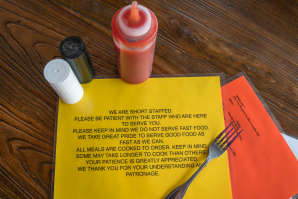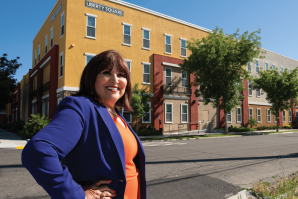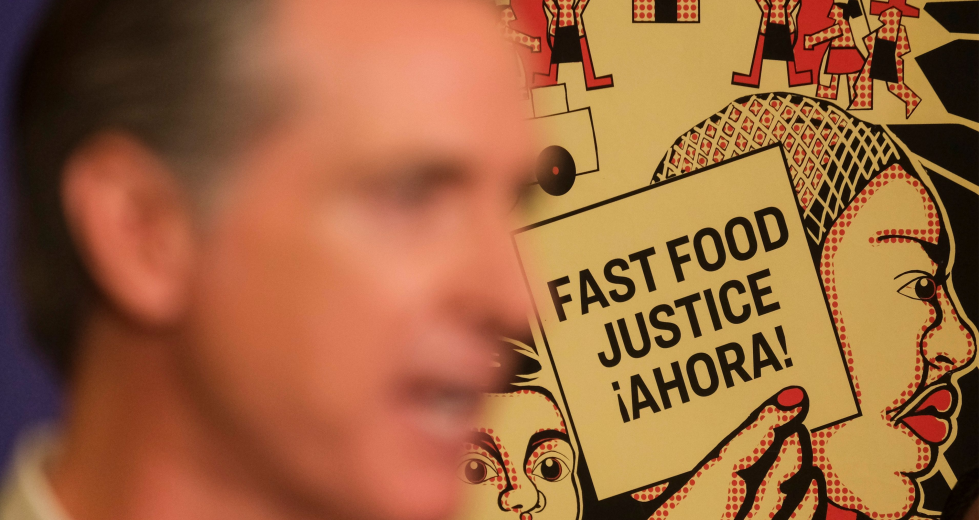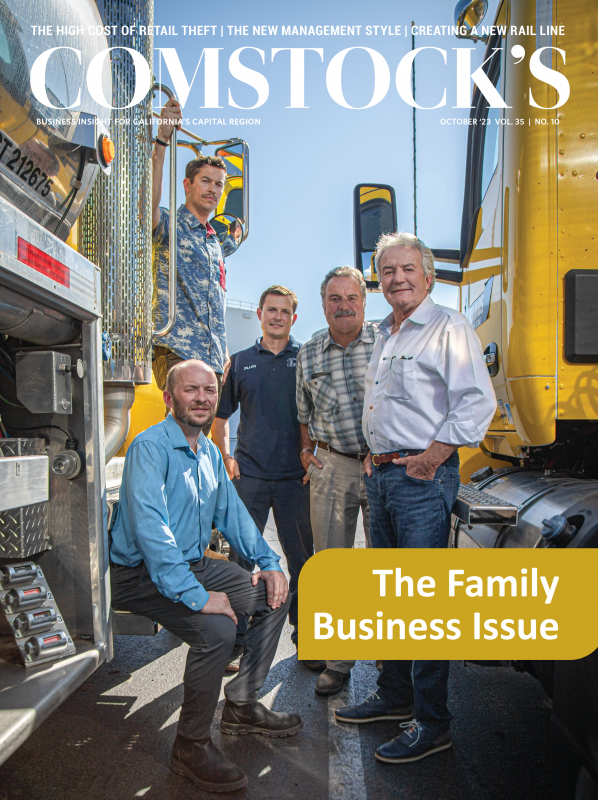I heard on KFBK the other day that Kaiser Permanente employees wanted higher wages, or they’d be striking. The United Auto Workers are already on strike, and the Writers Guild was on an extended strike before a tentative agreement was reached as of this writing.
A deal announced Sept. 11 between labor groups and fast food corporations could lead to a $20 minimum wage for fast food workers in California. The raise would be a concession on the part of the businesses in return for the withdrawal of a ballot measure that would “hold fast food corporations legally responsible for labor violations in their franchise locations,” according to news reports.
Wait a second. With all due respect to the young people who ask, “You want fries with that?,” their work doesn’t constitute a paid internship as they begin their careers in the hospitality industry. And even if working part-time at a fast food, drive-through restaurant were to lead to that admirable outcome, are they really doing work that merits a guaranteed minimum $20-an-hour wage?
When I was growing up in Nevada City and car-hopping at the local A&W, a hamburger was 35 to 50 cents. I saved every penny of my salary and tips, and at the age of 15-1/2 years old, I was able to purchase my first car. So I definitely subscribe to starting a work life with a fast food job. There’s much to learn with these entry level jobs.
But raising the cost of labor doesn’t necessarily help anyone, including the individual getting the raise, because everything else has to increase along with it to pay for that increased cost of doing business. On top of that, raising wages for an entry-level job like fast food effectively mandates that all other wages for all other jobs must similarly increase as well. Then all prices will have to be raised, the dollar won’t have the value it did, and that $20-$30 minimum wage suddenly won’t be able to buy any more than the $7.95 hourly minimum wage of earlier times.
We all have to be careful what we wish for. The wage hike may benefit corporations that want to avoid further regulation, but small businesses get the short end of the stick. The fact is, a small business owner might not be able to absorb the additional labor costs; this could lead to reduced hours or, much worse, layoffs and increased automation of unskilled labor jobs.
Businesses throughout our region and nation are being portrayed as villains if they don’t acquiesce to ill-founded and vote-pandering calls for increasing the minimum wage. Pundits and politicians believe (or say they believe) that if the minimum wage is increased, consumers will spend more and give a leg up to the overall economy because low-wage workers will have more money to spend on consumer goods. Does anyone really think the economy is that simple — or that we are? When labor costs go up, so do prices for services and goods. Jobs are cut, and automation looks better and better to business owners.
What’s ludicrous is that elected leaders who can’t figure out their own budgets are dictating to businesses how to run theirs. Wouldn’t it be nice if every time we miss-budgeted something we could just raise taxes to cover our own ineptitude at careful planning? If we balanced our personal and business checkbooks the way politicians do (with what are actually OUR checkbooks), we’d be declaring Chapter 7, 11 or 13 on a regular basis.
The Congressional Budget Office is estimating that this year we may see as many as 1.9 million jobs slashed to accommodate higher wages. It may be too late to stop the runaway train of California’s economy, but there’s still time for courageous business owners and (much rarer) elected leaders with spines to slow the train down.
Americans need to put a roof over their heads, food on the table and gas in their cars, and they need to afford utilities, not to mention clothing, basic household goods and the fees for their children’s school activities. They’re cutting back, and for too many, there is little left to cut. The middle class is seriously stressed. Many credit cards are maxed out, and others are reportedly in danger of default. Many lack retirement savings and can’t help their children pay for post high school education.
If we are going to keep the American Dream alive and stop a declining standard of living, we have to look beyond raising wages for solutions. Governmental policies are the elephant in the room and are a significant factor in our economic problems. We need to ensure that our solutions for one problem don’t cause even bigger problems with unanticipated consequences.
At what point will businesses shut down, or find new overseas locations to export jobs again? At what point will they adopt artificial intelligence or robots to replace jobs that will never return?
We need our best minds to look at the many underlying causes of our economic stresses and address them. What do you think?
Winnie Comstock-Carlson
President and Publisher
–
Stay up to date on business in the Capital Region: Subscribe to the Comstock’s newsletter today.
Recommended For You

Successful Entrepreneurs Are Innovative Risk-Takers
Comstock’s president and publisher considers the risks involved in becoming a successful small-business entrepreneur — such as starting a magazine with just $2.50 in your pocket.

Sacramento Rising: It’s Our Time
As Walt Kelly’s cartoon possum Pogo said on posters for the first Earth Day in 1970, “We have met the enemy and he is us.” Comstock’s president and publisher considers how the motto applies to California.

How to Win the ‘War for Talent’
Doesn’t anybody want to work anymore? It’s not just a rhetorical question. More than 50 percent of those surveyed by Pew Research said they believed they would get ahead in their careers by working harder. I was heartened to see that, because my personal mantra for success has always been that working harder is the first and best way to solve most problems.

Can a State Office Building Become a Home?
To help solve the housing crisis, the State of California has identified excess sites for conversion to affordable housing
In 2019, Gov. Gavin Newsom issued an executive order to identify excess state-owned property that could be converted into affordable housing. Few local examples exist, leaving architects and developers to wonder if they are financially feasible and what, if any, kinds of funding are available.





